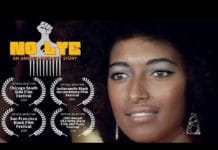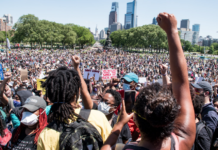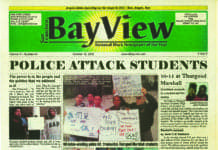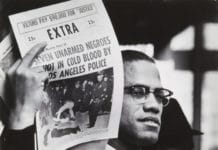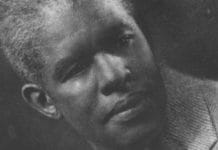by Minister of Information JR

The film focuses on his-story of Oakland, on the violence and drugs, on the reporting of Chauncey Bailey and on Dr. Yusuf Bey of Your Black Muslim Bakery – his good works in the community as well as the allegations against him before he passed away. It admits that Chaucey Bailey and Bey had a relationship when Dr. Bey was working with a group called Black Men First and Bailey was attending meetings and regularly reporting on its activities for the media.

They fail to talk to Paul Cobb, publisher of the Oakland Post and Chauncey Bailey’s boss at the time he was murdered, saying he told investigating officers immediately after the murder that he thought the police were involved and they refused to write it down.
And, most of all, where were the interviews with Chauncey Bailey’s colleagues in the Black press? If they refused to be interviewed like I did for this documentary, it may have been because even when the documentary was explained on the phone, it sounded like a anti-Black propaganda piece.
Right in line with the Anti-Bakery Project – euphemistically called the Chauncey Bailey Project – and the U.S. government’s objectives for the MK-Ultra Program, the film, in the eyes of a fellow media-maker, is designed to engineer public opinion about what happened and who did what, why. This “unbiased reporting” omits a lot of major facts and people that are important to making this a well-rounded story.

And it also features Chris Thompson of the East Bay Express, commonly called the Nazi Bay Express in the Black community, which is a racist, politically driven free white weekly with a modest circulation in the eastern part of the Bay Area. This publication has been known to regularly bash everybody from the Bakery, to the Black Dot, to Ishmael Reed, to myself, to Oakland City Councilwoman Desley Brooks, to Oakland Mayor Ron Dellums, who are all power brokers in the city of Oakland and in surrounding areas.

Notice I did not say they push thinkers in the Black community; I said performers and entertainers. They have never pushed self-determination for the Black community within their pages or on their website. They have pushed for assimilated dependence and local white domination within Oakland, which was at one time – not long ago – a chocolate city.
In fact, the Nazi Bay Express broke the color line when it hired Eric Arnold to be its first Black reporter near the turn of the millennium.
With all these bad ingredients, it is not hard to see why this movie hasn’t received accolades from respectable people in the Black communities of the Bay Area. This is not to say that history should not be objectively discussed, but it has to be done where all the variables are thrown into the equation, so that we can get a solid answer about what is happening around us and what happened in this case.

I do think that this documentary should be studied, because it is very strong in the department of psychologically engineering ideas and connections. It is important for us in the Black community to study this, so that the masses can begin to build up a psychological resistance to this form of media terrorism.
Email POCC Minister of Information JR, Bay View associate editor, at blockreportradio@gmail.com and visit www.blockreportradio.com.
Note: “A Day Late in Oakland” airs again on Sunday, Oct. 17, at 6:30 p.m. on KQED Channel 9.

 Store
Store




